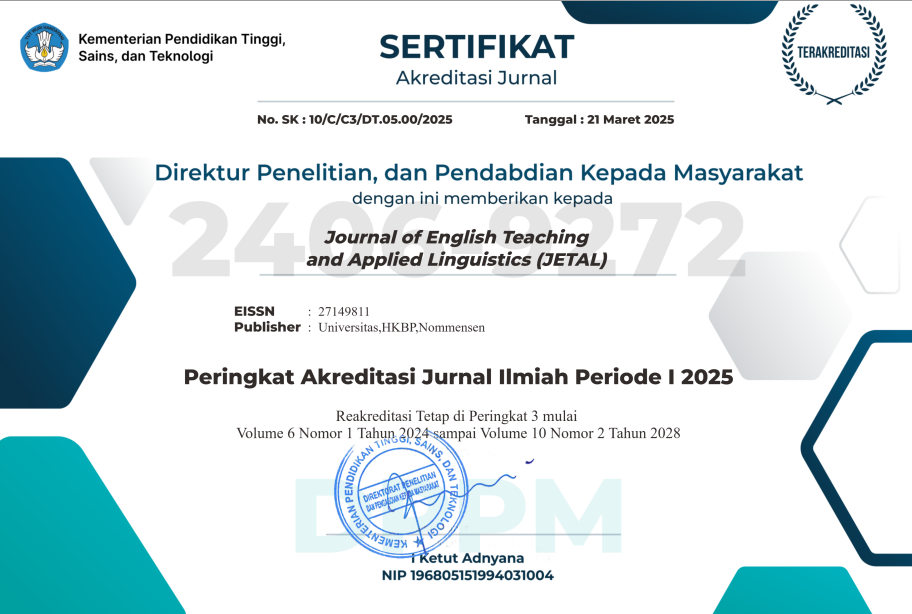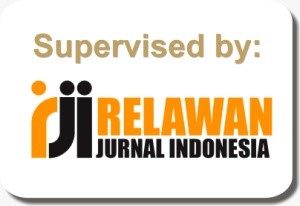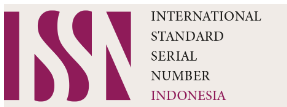The Use of Linguistic jokes in EFL Classroom
Abstract
Humor is widely recognized as an effective method for promoting language acquisition and enhancing language skills. Using humor in language training can help students feel more at ease, reduce tension, and encourage good emotions, all of which have a favorable effect on their motivation and engagement. In language-learning environments, linguistic jokes are one sort of humor that has not been well investigated. This study uses descriptive qualitative methodologies to investigate the advantages of linguistic jokes in the English as a foreign language (EFL) classroom. Data were gathered for the study from interviews, focus groups, and classroom observations involving EFL students. The results show that language learners gain from using linguistic jokes in EFL classes in several ways, including greater motivation, increased engagement, improved communication skills, and decreased anxiety. The study also emphasizes how humour can improve the learning environment by encouraging greater participation and a sense of belonging among students. The qualitative data show that learners have good attitudes toward using humour in language acquisition, which lends credence to these findings. The study proposes that EFL teachers utilize humour as a teaching method to facilitate language learning and develop language skills. It also finds that including linguistic jokes in EFL classrooms can benefit language learners in various ways.
References
Abdul, M. (2020). Revitalization of English Teacher Education: An Effort To Improve Ther Quality of Students’ Learning In English. repo-dosen.ulm.ac.id. https://repo-dosen.ulm.ac.id/handle/123456789/9586
Attardo, S. (2017). Linguistic theories of humor. In The Routledge Handbook of Language and Humor (pp. 30–44).
Clarke, S. (2014). Qualitative research: the essential guide to theory and practice [by] Maggi Savin-Baden \& Claire Howell Major. Psychology Learning \& Teaching. http://irep.ntu.ac.uk/id/eprint/32829/1/PubSub10268_Clarke.pdf
Davies, C. (2015). The role of humour in learning {English} as a second language. Journal of Language and Linguistic Studies, 11(1), 1–16.
Dörnyei, Z. (2014). Motivation in Second Language Acquisition. Routledge.
Dörnyei, Z., & Ushioda, E. (2011). Teaching and Researching Motivation (2nd ed.). Longman.
Falk, J. (2016). The benefits of humor in the classroom. Education Digest, 81(8), 50–53.
Farooq, M. S., Uzair-Ul-Hassan, M., & Wahid, S. (2012). Opinion of second language learners about writing difficulties in English language. South Asian Studies. https://www.researchgate.net/profile/Muhammad-Farooq-23/publication/265561270_Opinion_of_Second_Language_Learners_about_Writing_Difficulties_in_English_Language/links/56cdd9fd08ae85c8233e8413/Opinion-of-Second-Language-Learners-about-Writing-Difficulties-in-English-Language.pdf
Kaçani, L., & Mangelli, S. (2013). Albanian Teachers’ Perceptions about difficulties in teaching and learning grammar of EFL. Journal of Educational and Social Research. https://www.mcser.org/journal/index.php/jesr/article/view/553
Merriam, S. B. (2018). Qualitative research: A guide to design and implementation (4th ed.). John Benjamins Publishing Company.
Mohajan, H. K. (2018). Qualitative research methodology in social sciences and related subjects. Journal of Economic Development, Environment and …. https://www.ceeol.com/search/article-detail?id=640546
Motlagh, F. G., Motallebzade, K., & Fatemi, M. A. (2014). On the effects of teacher’s sense of humor on Iranian’s EFL learners’ reading comprehension ability. International Journal of Applied Linguistics and English Literature, 3(4), 1–5.
Oxford, R., & Crookall, D. (1990). Vocabulary learning: A critical analysis of techniques. TESL Canada Journal, 7(2), 9–30.
Paltridge, B., & Phakiti, A. (Eds.). (2015). Research methods in applied linguistics: A practical resource. Bloomsbury Publishing.
Sakamoto, M., & Williams, K. E. (2012). The effects of humor in EFL classrooms on Japanese adult learners’ willingness to communicate. Journal of Asia TEFL, 9(3), 29–60.
Authors retain copyright and grant the journal right of first publication with the work simultaneously licensed under a Creative Commons Attribution-ShareAlike 4.0 International License (CC BY-SA 4.0) that allows others to share the work with an acknowledgment of the work's authorship and initial publication in this journal.
Authors are able to enter into separate, additional contractual arrangements for the non-exclusive distribution of the journal's published version of the work (e.g., post it to an institutional repository or publish it in a book), with an acknowledgment of its initial publication in this journal.
Authors are permitted and encouraged to post their work online (e.g., in institutional repositories or on their website) prior to and during the submission process, as it can lead to productive exchanges, as well as earlier and greater citation of published work (See The Effect of Open Access).






